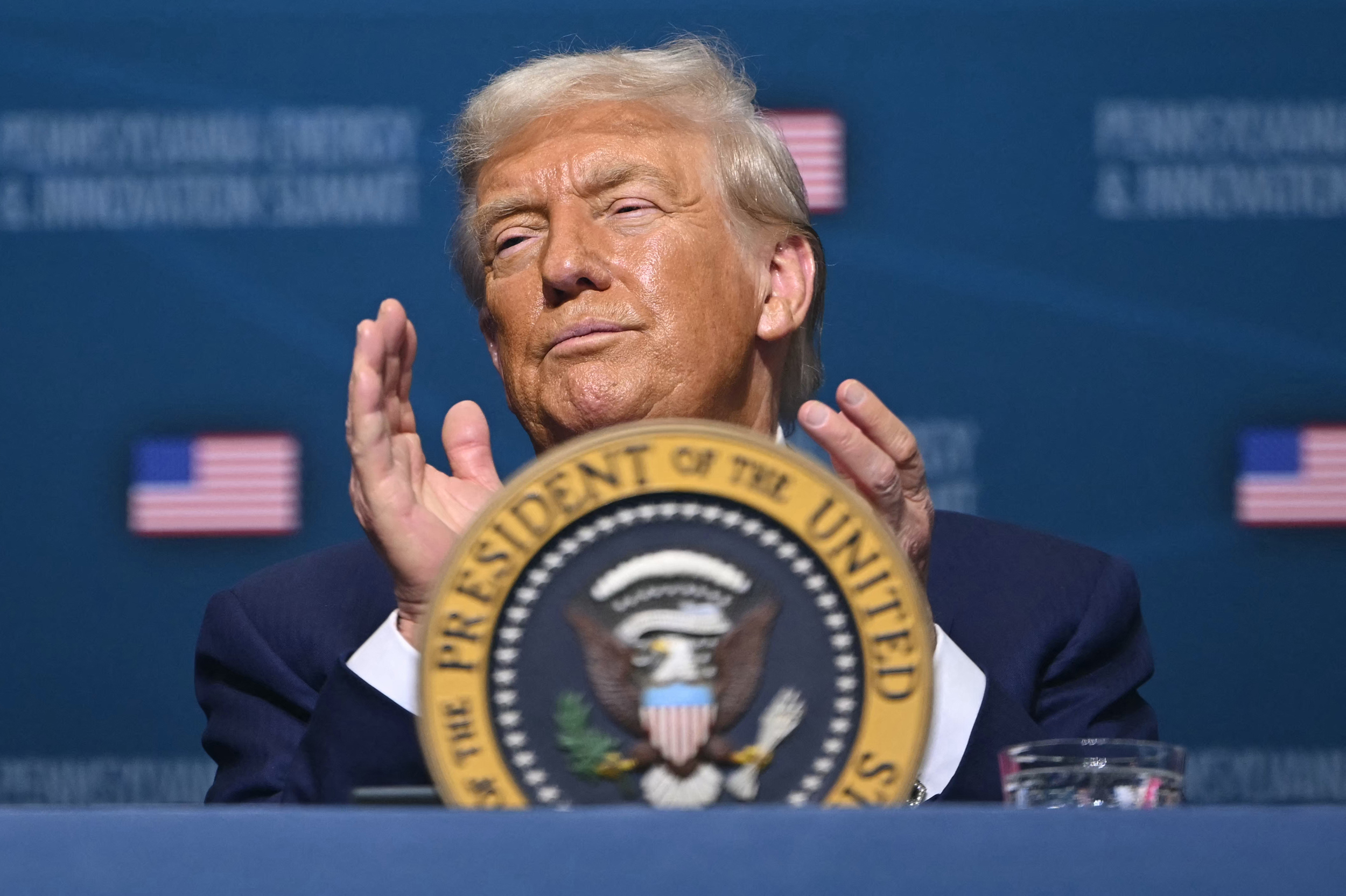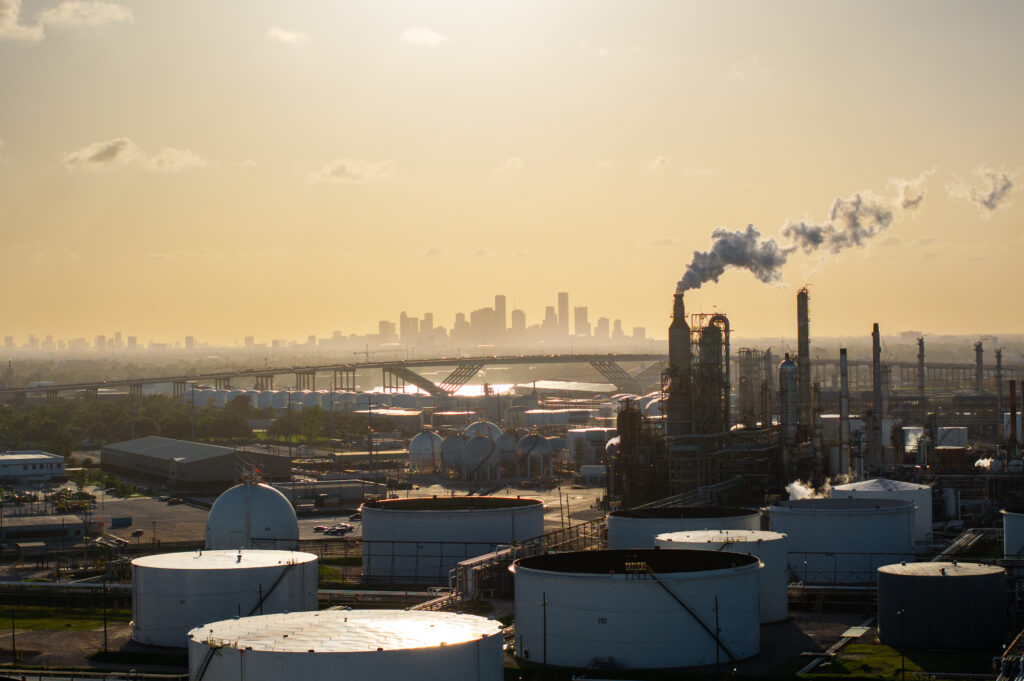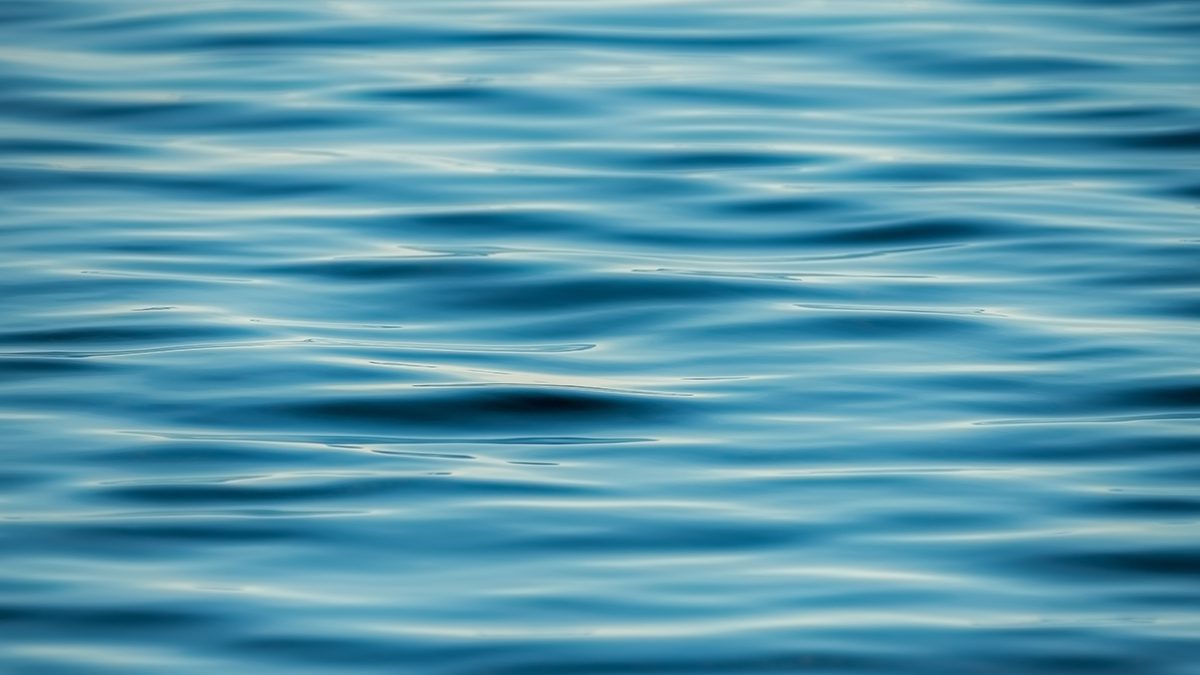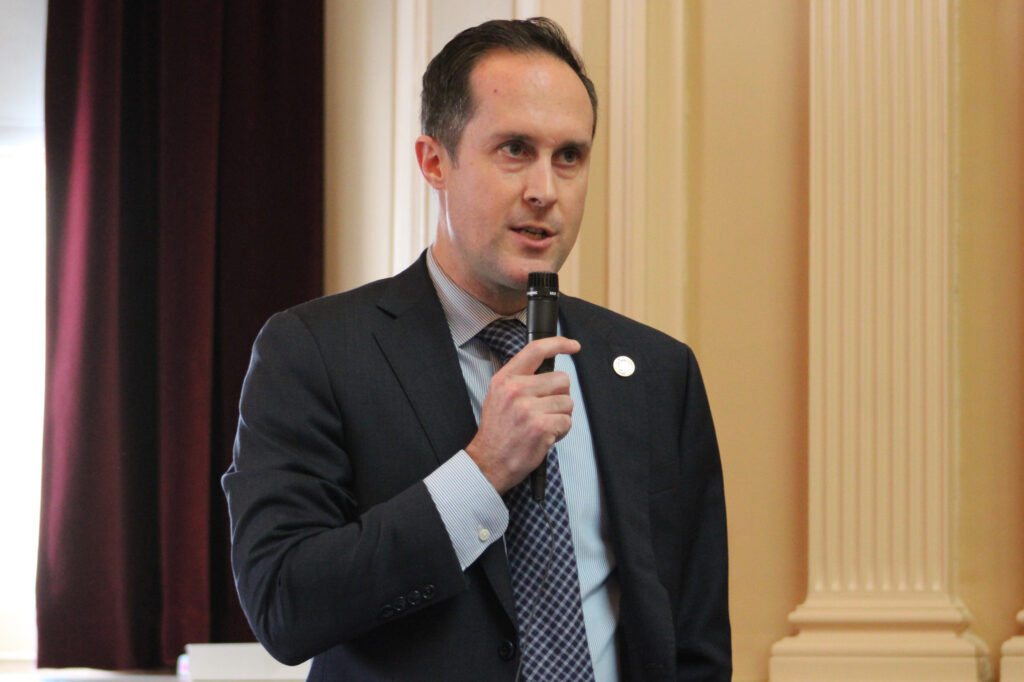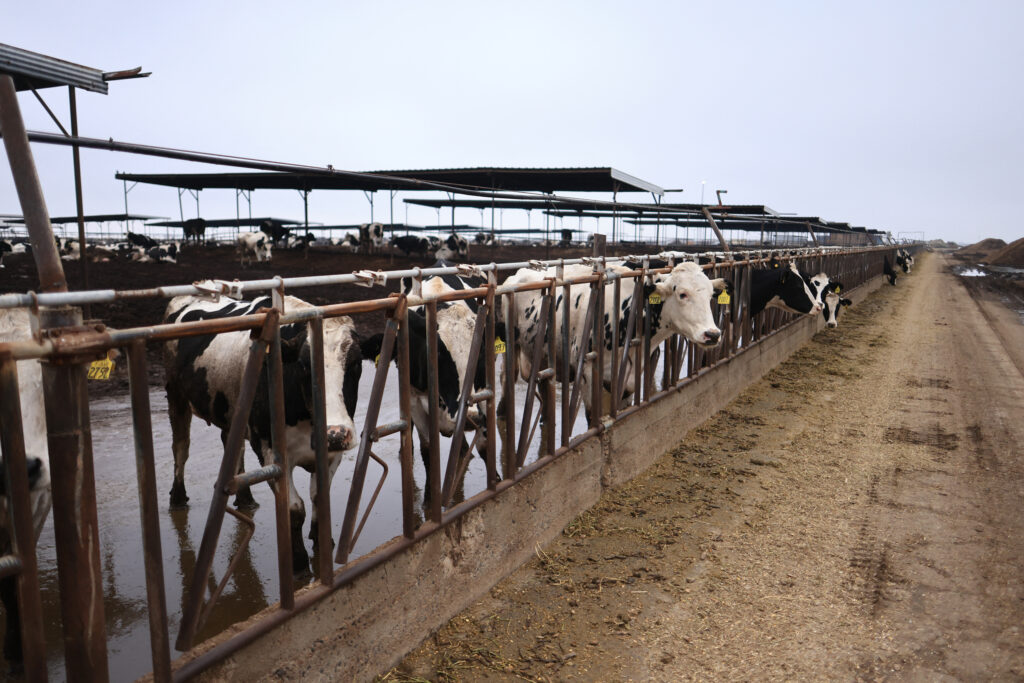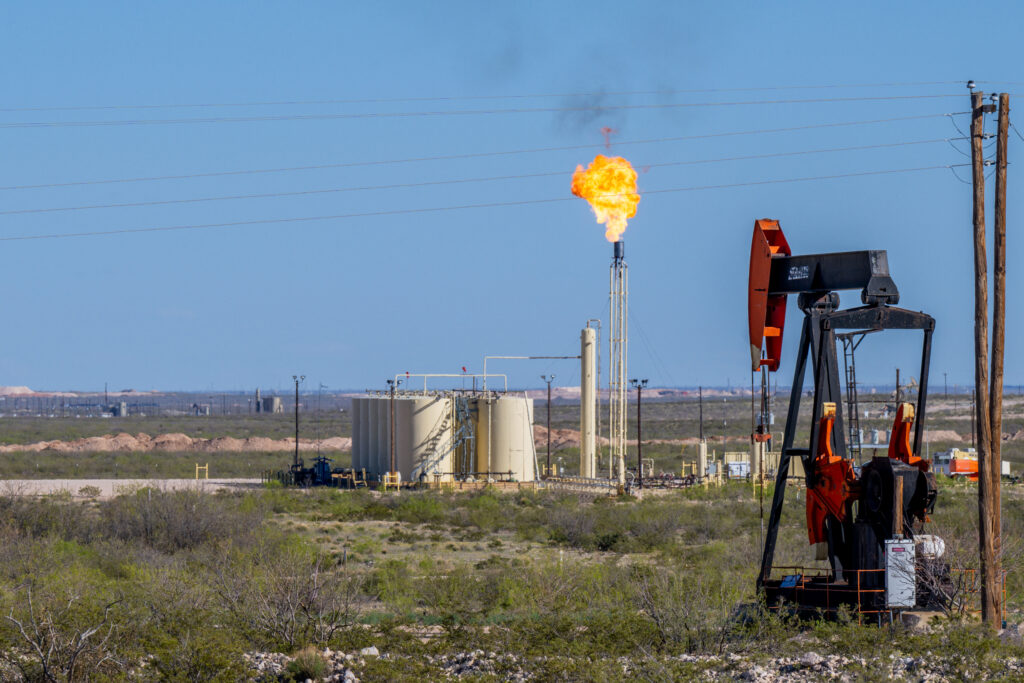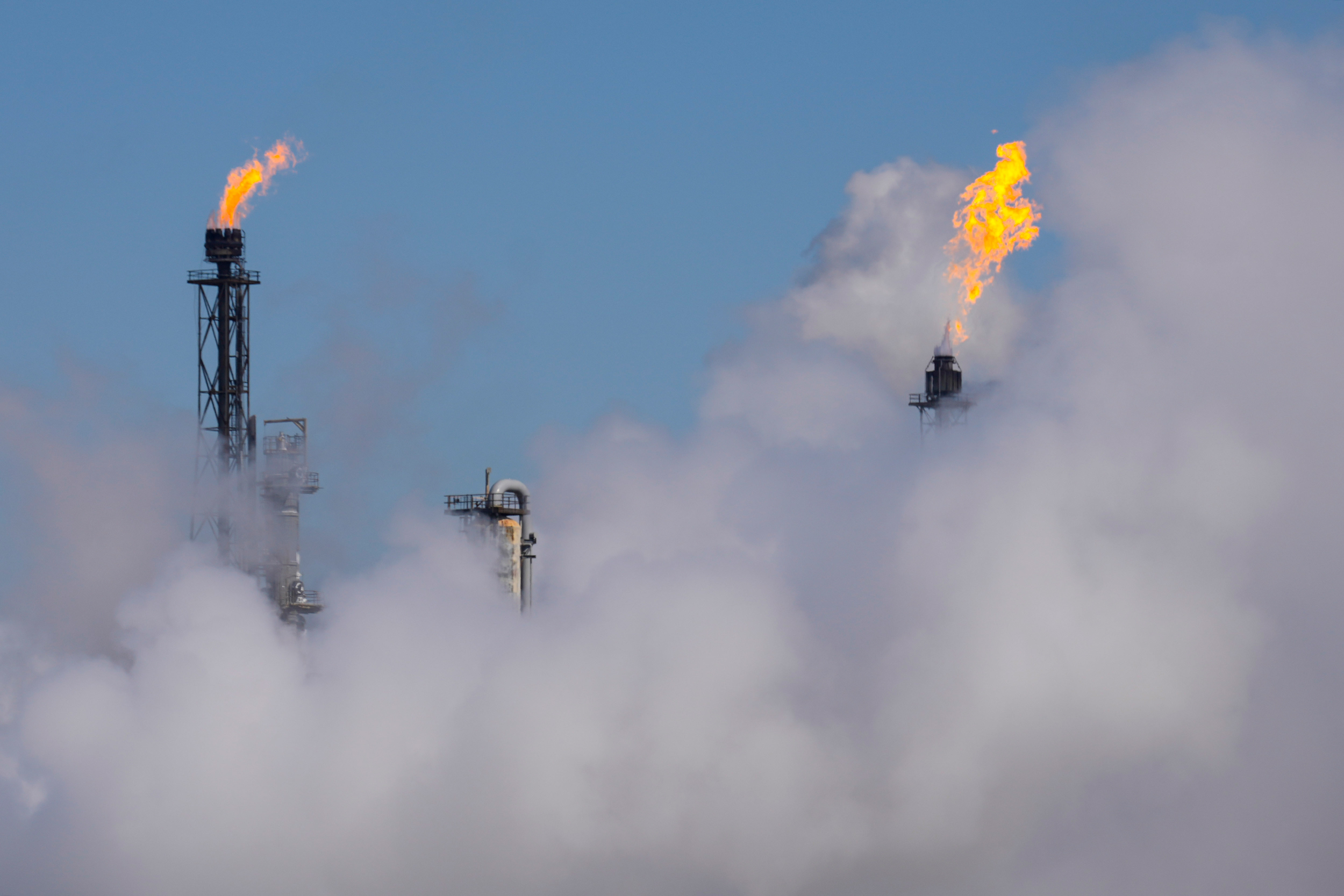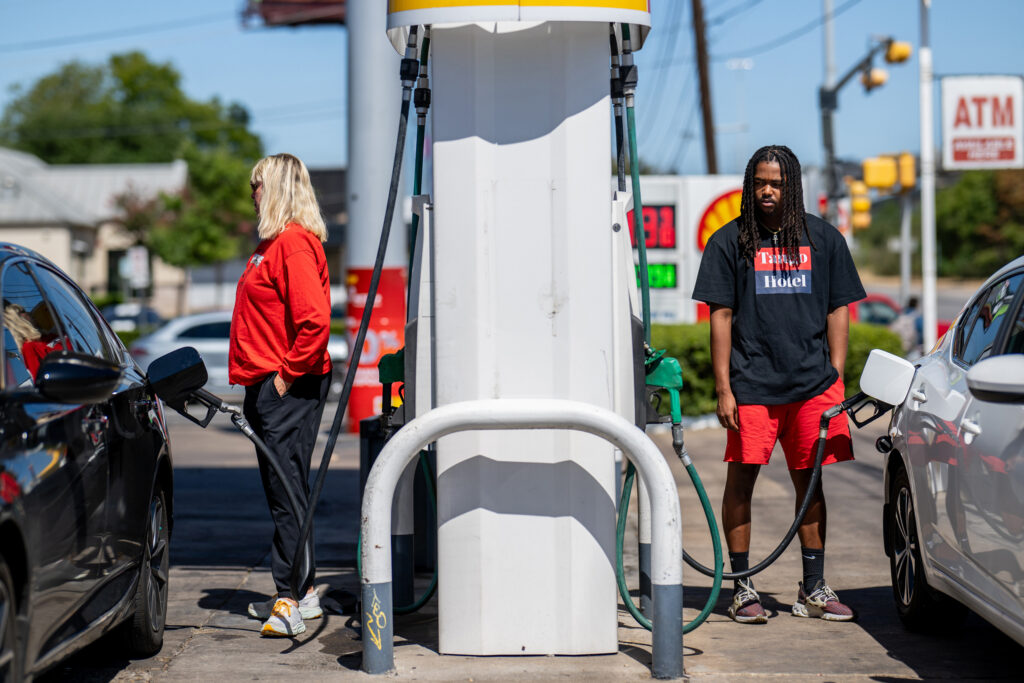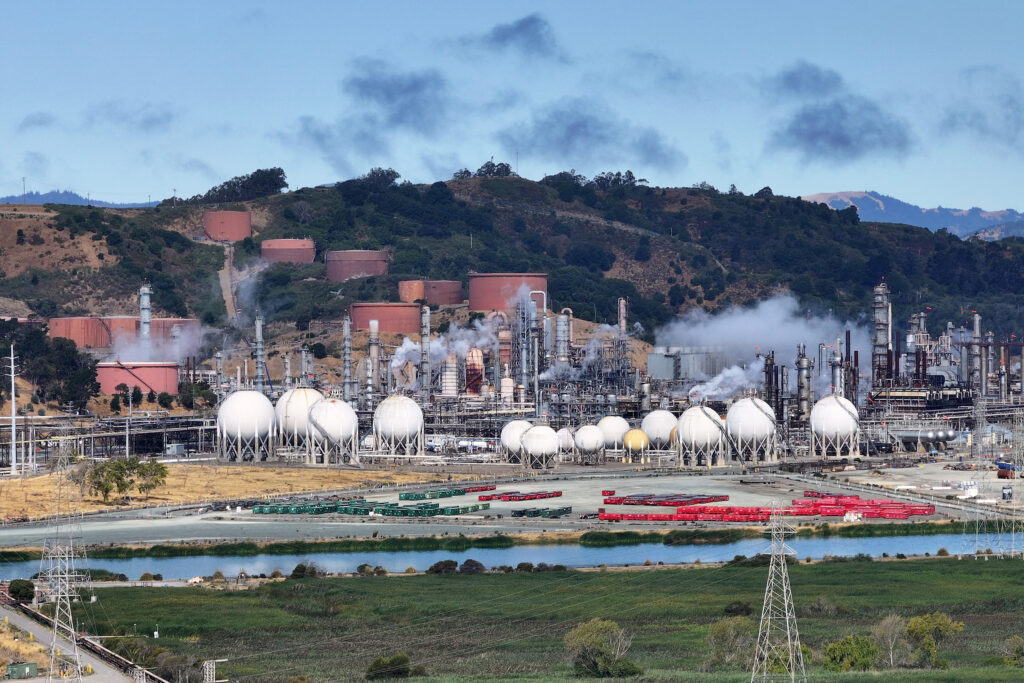THE HAGUE, Netherlands—A steel-gray sky hung over the climate proceedings at the International Court of Justice this month, evoking the shadows World War II cast over the negotiators who met here in 1946 to try to establish global legal norms that could bring a peaceful future to a world that had, just a few years before, been tearing itself apart.
And as the 15-judge panel on Dec. 2 started hearing statements from more than 100 countries and organizations on the topic of states’ legal obligations to one another regarding climate change, the planet seemed to be hurtling toward a different, but no less deadly human-caused catastrophe. By some estimates, the climate crisis could kill up to 14.5 million people by 2050.
Since many smaller developing countries are bearing the brunt of climate damages that they did little to cause, the United Nations General Assembly in March 2023 asked the ICJ to issue an advisory opinion clarifying what obligations U.N. member countries have to protect the climate system from damaging greenhouse gas pollution.
The court is expected to release the opinion sometime in 2025, but no exact date has been set. The climate issue is one of the most complex the court has had on its docket, with a record number of statement and comment submissions, as well as a record number of states and organizations participating in the oral proceedings. According to the United Nations, “The hearings are vital to establish a stronger framework of accountability that sets clear international legal obligations for climate action.”
The push for more legal clarity regarding human-driven global warming was led by Vanuatu and Pacific Islands Students Fighting Climate Change, a nonprofit climate advocacy group. In response to their request, the U.N. General Assembly also asked the court to provide an opinion on whether any legal consequences should be imposed on states whose “acts and omissions” have already caused significant harm to the climate system.
Leading up to the start of the advisory proceedings, Vanuatu and other developing countries expressed frustration with the slow pace of progress at the annual global climate talks known as COPs, held under the auspices of the United Nations Framework Convention on Climate Change.
“Our delegation has just returned from the recent COP29 in Baku, where we witnessed firsthand, once again, the failure of the process,” Ralph Regenvanu, Vanuatu’s Special Envoy for Climate Change and Environment, told the court.
He said it is “unconscionable” that the UNFCCC has failed to reach any agreement on cutting emissions, while science shows current climate plans will lead to a catastrophic average global increase in temperature of close to 5 degrees Fahrenheit by 2100, and even more warming over land areas and in the Arctic.
“For many peoples, including in Vanuatu, the prolonged and systemic failure of the COP process has cost them their well-being, cultures, even lives,” he said. “There is an urgent need for a collective response to climate change grounded not in political convenience, but in international law.”
Continuing Rise in Emissions Heats Up Hearings
Emissions have increased nearly every year since the COP talks began nearly 30 years ago and the damages from the warming climate have significantly worsened, especially in developing countries that lack adequate resources to adapt to rising seas, crop-killing heatwaves and other disasters that have been intensified by human-caused warming.
Margaretha Wewerinke-Singh, one of the attorneys representing Vanuatu at the proceedings, said a best-case outcome would be a strong advisory opinion from the ICJ stating that “persistent and excessive greenhouse gas emissions over many decades, maintained in full knowledge of the risks, breaches fundamental norms of international law.”
Previous advisory opinions have affected national and international law, and the climate opinion under consideration could do the same, she said.
“If a national court sees that the world’s principal judicial organ has found the continued promotion of fossil fuels and failure to reduce emissions to be unlawful, it might well embolden judges to act more decisively,” she said. “Courts might be more inclined to issue immediate injunctions against certain emissions-intensive activities, or to impose penalties on major emitters, especially where domestic laws allow for enforcement of international standards or principles.”
On the first day of the hearings, Regenvanu made it clear that the case will have long-term and widespread consequences.
“The outcome of these proceedings will reverberate across generations, determining the fate of nations like mine and the future of our planet,” he said.
“At issue in this case is the legality under the entire corpus of international law of a certain conduct displayed by specific States over time, which has interfered with the climate system to a point that has already caused significant harm to Vanuatu and that threatens the survival of my people and of humanity as a whole.”
Preempting possible arguments that global warming only emerged recently as a problem, Regenvanu noted that U.S. President Lyndon Johnson in 1965 stated unequivocally that human activities had already “altered the composition of the atmosphere on a global scale through radioactive materials and a steady increase in carbon dioxide from the burning of fossil fuels.”
Just a small number of well-known states have produced the vast majority of historic and current emissions, but other countries are suffering the most severe consequences, the developing countries emphasized.
“If one uses, or allows their property to be used, in a manner to cause harm to another, that harm must be stopped and reparations paid in full.”
— Ernestine K. Rengiil, Palau Attorney General
The “beating heart” of the request for an advisory opinion is asking the court to determine the legal consequences for states that have greatly damaged the climate and other parts of the global environment, he said.
Vanuatu and other developing countries want the court to recognize that such climate-damaging activities are illegal under existing environmental laws and treaties, as well as in the context of human rights and the rights of nature.
“We look to the Court for recognition that the conduct which has already caused immense harm to my people and so many others is unlawful, that it must cease and that its consequences must be repaired,” Regenvanu said.
Later in the week, Palau Attorney General Ernestine K. Rengiil concisely summarized the combined pleadings of developing countries, putting international climate law into a do-unto-others context.
“If one uses, or allows their property to be used, in a manner to cause harm to another, that harm must be stopped and reparations paid in full,” she said. “In most moral systems, this is simply ‘The Golden Rule.’”
Rich Countries Focus on Paris Pact
During the ICJ proceedings, the rift between wealthy, developed countries that have done the most to cause the climate crisis and under-resourced, developing countries was even more obvious than at the annual UNFCCC climate talks.
In the wood-paneled courtroom, developed countries like the United States, Germany and the United Kingdom acknowledged that the sum of their cumulative emissions have damaged the climate, but pursued legal loopholes that would let them avoid ever having to pay for those damages.
The U.S. questioned whether the customary international law obligation to prevent or minimize significant transboundary environmental harm applies to climate change and the global harm caused by anthropogenic greenhouse gas emissions, citing the precedent of past cases in which courts and other international tribunals have said those principals only apply when pollution can be traced to specific sources.
Even though 29 years of UNFCCC climate talks have not delivered the deep greenhouse gas emissions cuts needed to slow global warming, the U.S. sees that process as the main avenue for addressing global warming internationally, U.S. State Department legal advisor Margaret Taylor told the court on Dec. 4.
“That régime provides the primary framework for States’ international obligations in respect of climate change,” she said, “and in our view should be central to the Court’s advice to the General Assembly in this proceeding … Any other legal obligations relating to climate change mitigation identified by the Court should be interpreted consistently with the obligations States have under this treaty régime.”

If global efforts to stop global warming end up being fought in court, it could further slow the already tenuous progress of the international effort to confront global warming and threaten the collaborative process at the UNFCCC talks, developed countries have hinted.
The U.S. also seemed to suggest that the Nationally Determined Contributions to cut emissions made under the Paris Agreement may not be worth much more than the paper they are written on, because they are only promises, and not mandatory legal commitments.
The Paris Agreement, Taylor said, requires states to “pursue domestic mitigation measures, with the aim of achieving the objectives” of their respective emissions reductions plans, but as the U.S. sees it, that is an obligation to make a good faith effort that “does not, however, convert a party’s NDC into a binding obligation of result.”
The voluntary nature of the emissions pledges under the Paris pact is critical, she said, because it “recognizes that a State’s mitigation contribution will be most effective if it grows out of the State’s domestic policy process and reflects the State’s national circumstances, including its capacities,” rather than being imposed by a court.
Taylor acknowledged that the “adverse effects of climate change and the transformations required to address it can impact individuals’ enjoyment of their human rights,” but she added that international human rights law does not currently “provide for a human right to a healthy environment,” and “does not obligate States to mitigate anthropogenic greenhouse gas emissions.”
Toward a Climate-Responsive Legal System
The ICJ is a panel of 15 judges elected to nine-year terms by the U.N. General Assembly and the U.N. Security Council.
There’s never more than one judge from any one country, but the United States has always had a seat on the panel. Unlike most other international organizations, the judges are not delegates or representatives of their countries’ governments, but independent judges who declare in open court that they will exercise their powers impartially and conscientiously.
This story is funded by readers like you.
Our nonprofit newsroom provides award-winning climate coverage free of charge and advertising. We rely on donations from readers like you to keep going. Please donate now to support our work.
Donate Now
In its first case in 1946, the court ordered Albania to pay about $1 million to the United Kingdom for damage to British ships caused by mines, but also ruled that the U.K. had violated Albanian sovereignty with its mine-sweeping activities.
In 1984, Nicaragua filed a case against the United States with the ICJ to address illegal U.S. military and paramilitary activities supporting rightwing militias as part of a covert effort to overthrow Nicaragua’s elected government. After the court ruled that it had jurisdiction in the case, the U.S. announced it would not participate in the subsequent proceedings. The court nonetheless issued a statement that the United States had violated several customary obligations of international law, including not intervening in the internal affairs of another state, not using force or infringing on the sovereignty of another state and not interrupting peaceful maritime commerce.
The ICJ issued its most recent advisory opinion on July 19, declaring Israel’s occupation of the Gaza Strip and West Bank illegal, and mandating that Israel end its occupation, dismantle settlements, make reparations and facilitate the return of displaced people.
As the climate hearings continued into their second week, developing countries continued to put global equity and justice at the core of what is at stake for the ICJ.
Samoa alleged that some states’ continued output of climate-warming emissions violates the right to self-determination, cultural rights and the right to life. The Polynesian island also rejected arguments that the cause of the problem is too complex, noting that “science can identify, with precision, the contribution of individual States to total GHG emissions, global mean temperature rise, and sea-level rise.”
Based on that knowledge, the court should apportion contributions to a reparations fund to individual states based on the amount of damage they have caused, it asserted, and emphasized the importance of the immediate cessation of the emissions that make up the wrongdoing.
East Timor attorney Eran Sthoeger noted the difference between what he called subsistence pollution—necessary for survival—and luxury pollution resulting from excess consumption of goods and services not essential to sustain existence.
As such, the climate crisis can’t be separated from global poverty and inequality, he said. The global economic system is organized against the interests of the world’s least-developed countries, he added, and in favor of “industrialized nations who have reaped the benefits of rapid economic growth powered by colonial exploitation and carbon-intensive industries and practices.”
Julian Aguon, one of Vanuatu’s attorneys, said on the last of the proceedings that a strong opinion from the ICJ could serve as a powerful catalyst for legal action at the national level. he said. “Such a determination would go beyond merely recognizing obligations. It would suggest that the duty to cease this wrongful conduct is immediate and indisputable.”
But he added that there are no guarantees that the ICJ’s advisory opinion will tip the scales of justice.
“Legal systems vary, and domestic courts often need plaintiffs with standing and clear statutory hooks,” he said. “But a forceful ICJ opinion would support the argument that continuing to emit greenhouse gases at dangerous levels is not just politically irresponsible. It’s legally indefensible under the highest norms of international law.”
Over time, he said, this could create a new legal landscape, in which emergency measures, such as injunctions or immediate emission cuts, “would be seen not as extraordinary interventions, but as necessary, legally mandated remedies to ongoing, unlawful harm.”
About This Story
Perhaps you noticed: This story, like all the news we publish, is free to read. That’s because Inside Climate News is a 501c3 nonprofit organization. We do not charge a subscription fee, lock our news behind a paywall, or clutter our website with ads. We make our news on climate and the environment freely available to you and anyone who wants it.
That’s not all. We also share our news for free with scores of other media organizations around the country. Many of them can’t afford to do environmental journalism of their own. We’ve built bureaus from coast to coast to report local stories, collaborate with local newsrooms and co-publish articles so that this vital work is shared as widely as possible.
Two of us launched ICN in 2007. Six years later we earned a Pulitzer Prize for National Reporting, and now we run the oldest and largest dedicated climate newsroom in the nation. We tell the story in all its complexity. We hold polluters accountable. We expose environmental injustice. We debunk misinformation. We scrutinize solutions and inspire action.
Donations from readers like you fund every aspect of what we do. If you don’t already, will you support our ongoing work, our reporting on the biggest crisis facing our planet, and help us reach even more readers in more places?
Please take a moment to make a tax-deductible donation. Every one of them makes a difference.
Thank you,







